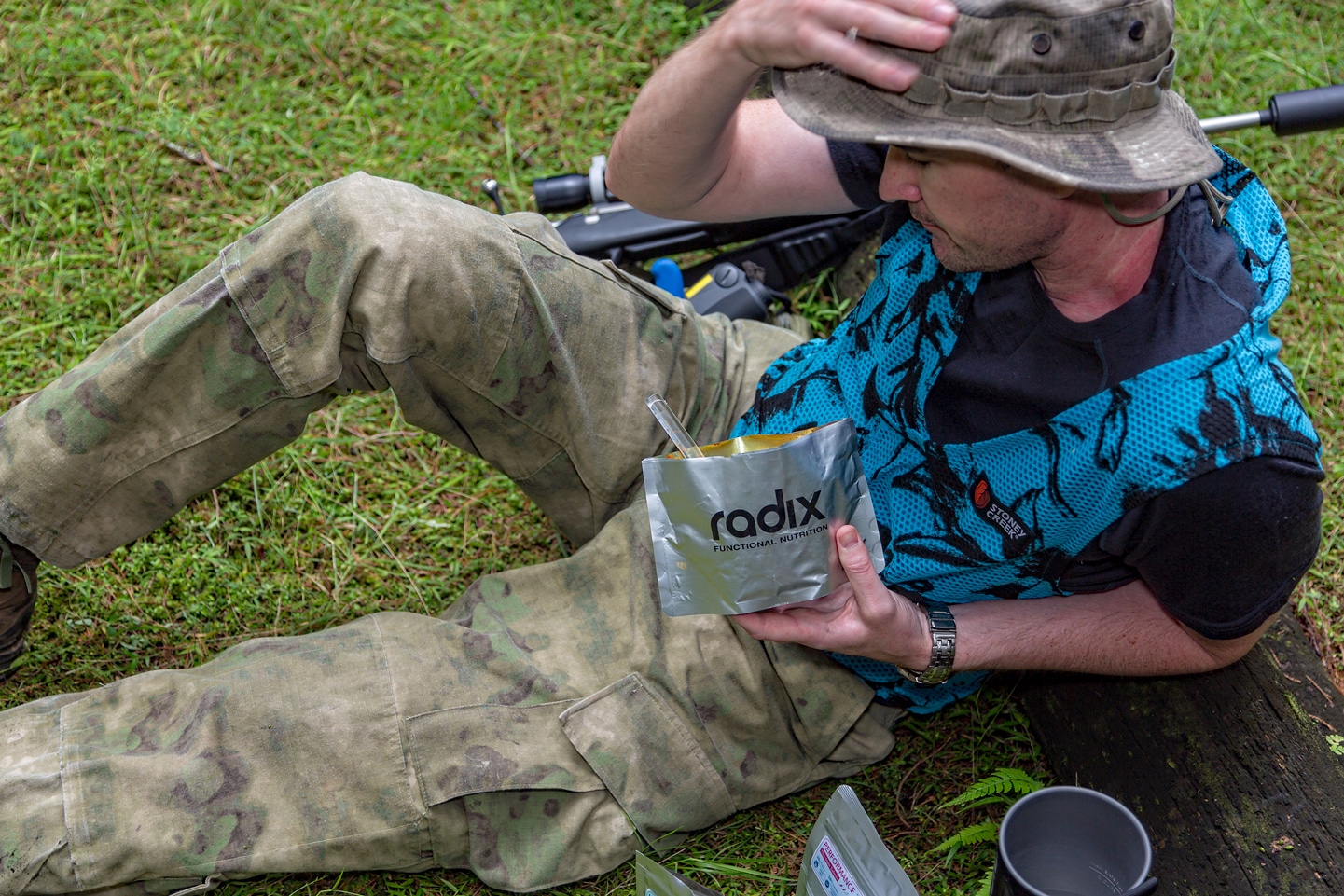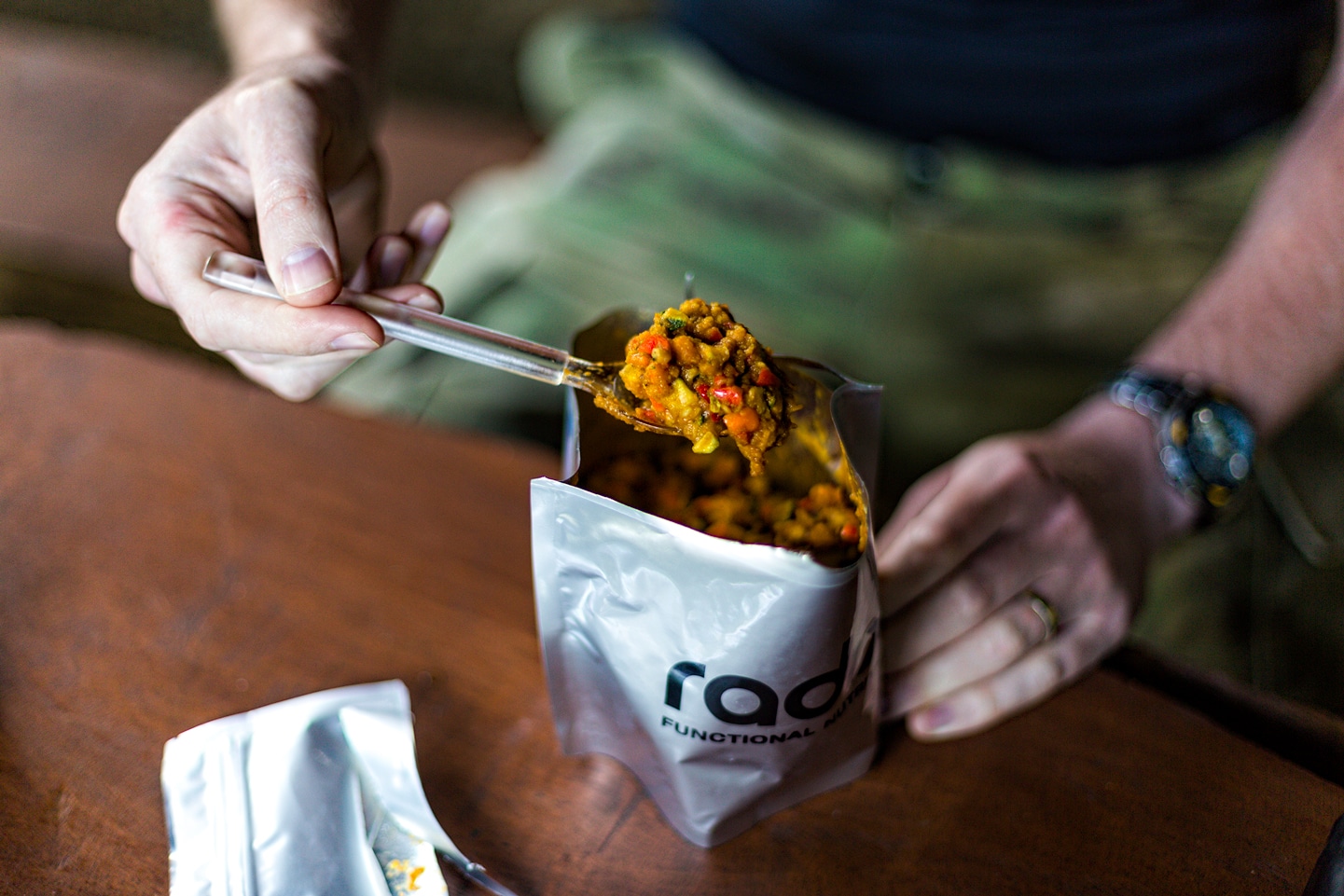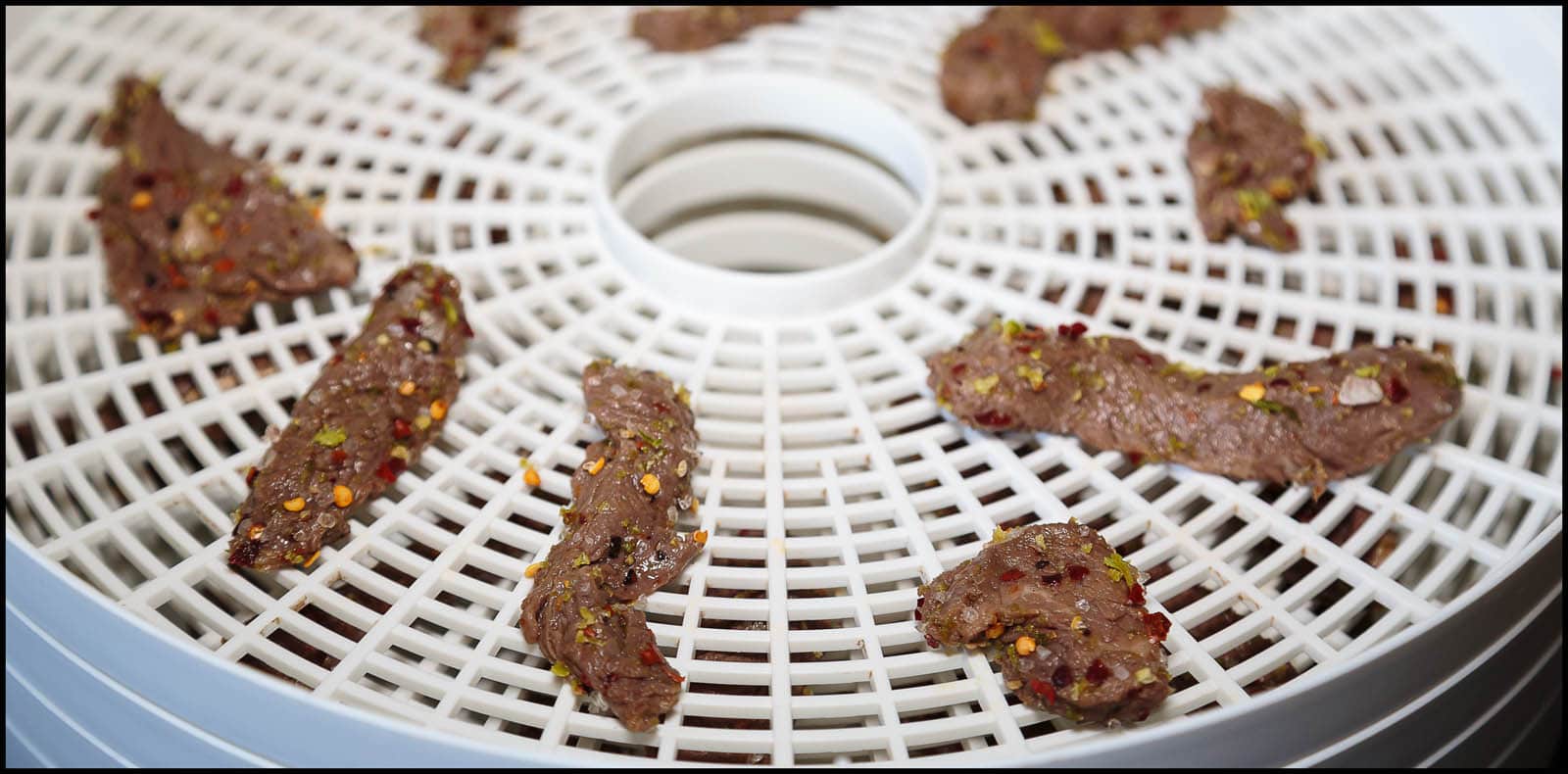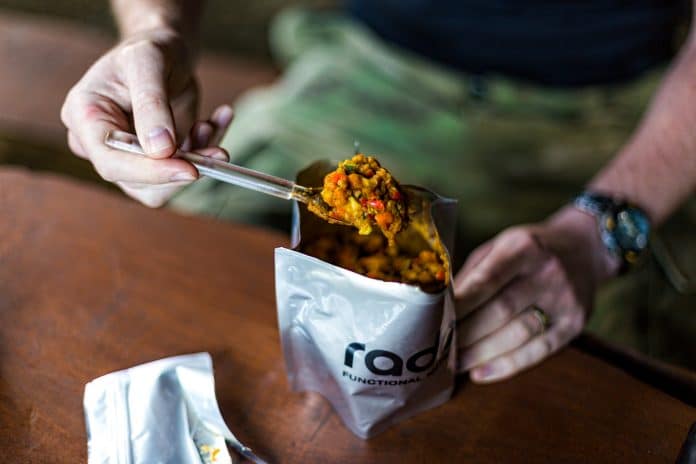Do I need to worry about nutrition?
Na. Not unless you are interested in
- Performing optimally while out hunting or shooting
- Making the best decisions when pulling that trigger
- Feeling better out the other side (i.e. recovering faster)
It’s not like we don’t actually all know how important the food we consume is to our wellbeing anymore. To deny that in modern times, is simply put, right up there with suggesting cigarettes cause no harm, or, alcohol doesn’t affect me anymore. Sure – comforting to tell yourself, but simple, intuitively, and factually wrong.
When I was younger1 – I could basically get away with eating a copious amount of any kind of food and be fine. These days, I find a late-night binge on sugar, can create nearly the same hangover a glass too many of Pinot used too. I find myself getting up slower in the morning, healing slower and just being more sluggish. If I pay, just the smallest amount of attention to my ‘inputs’ through – the ‘output’ is noticeably better.
But, I’m not a super athlete!
True. Neither am I – and while shooting and hunting can be considered strenuous activities – it’s hardly a Triathalon. Though it can involve mountaineering, long walks under heavy load, oh, and we have to often make a decision that literally is the difference between life and death.
In ‘The Hunters Tale’ – a publication from the Mountain Safety Council on Hunter Participation and Incidents – 54% per cent of all hunter injuries involve a firearm. A big part of that is due to poor decision making. Focusing on a subset of those incidents, Karl Bridges from hfex is currently working on a PhD on the subject of Hunter Safety – focusing on the causal factors that result in a hunter misidentifying and potentially shooting another hunter.
Karl Bridges of University of Auckland has found that pupil dilation, hydration and even personality type could influence a hunter’s decision-making at the point of firing.
Do you think nutrition could play a part as well? Do you think what we are eating, on top of everything else is compounding the issue?
Good nutrition – the food we eat – is part about performing well in the field, and part about safety.

Performance Considerations
There is a diet fad a minute at a moment – Paleo, Keto being a couple of current faves. So, without heading too far down any particular rabbit hole – let’s talk about a couple of things that we need to consider when it comes to ensuring we are performing our best behind the trigger and in the field. Again, don’t take this as nutritional gospel – but rather as an overreaching framework to consider when planning your eating.
When performing, much like our shooting, we are striving for consistency. We want a constant, reliable and long-lasting run of energy. The other way of looking at it – is that we shouldn’t run out or feel a dip. This consistency means we get less distracted (safety) and the body works like it optimally should (performance).
Carbohydrates – fuel the machine
Carbohydrates are essentially the fuel that your body burns (or more-so converts into glucose which is then used as fuel). Carb’s come in several different forms – so it’s not just a case of ‘carb-loading’ – it’s also about thinking about what kind and importantly, quality of carbs you are putting in to get the best result out.
But how do you know what is good for you? Now, this is a gross, gross oversimplification2 – but the closer the carbohydrate to the way it was grown, the better – this then, excludes processed foods and instead focuses on unprocessed or minimally processed whole grains, vegetables, fruits and beans. These will3 break down slower, meaning the fuel ‘lasts longer’ and is a smoother, consistent delivery. By comparison, many refined carbs are quickly digested – in turn causing blood sugar spikes, hunger pangs and a rollercoaster ride of energy.
It’s time to move beyond instant noodles.
A product that has been through several levels of refinement and likely also then had a pile of stuff added back into it (like sodium, stabilisers and preservatives) should not be your first choice. Sorry, but that cheap, reliable packet of instant noodles just isn’t very good for you to rely on as a primary source of nutrition. Not if you expect your body to perform well, at least. This also includes other kiwi standards of white rice, white bread, and well, anything that has had the colour and therefore natural goodness stripped out of it in the name of consistency, nice presentation and good shelf life.
Don’t skimp on breakfast!
It’s also important (and I am guilty of doing this myself) to not base early morning performance on stimulants. Namely – that cup of coffee or can or energy drink that forms your entire breakfast. Instead, as well know4 – we should have a decent breakfast to set ourselves right for the day. Especially when the early part of that day is going to consist of trying to outwit an animal, and potentially make the decision to shoot one.
While the old standard of instant porridge is a start, refer back up to my comments about Instant Noodles, and instead, consider something closer to muesli – a combination of dried fruit and with good fats from nuts and seeds is going to provide a much more solid base.
What about Fibre?
Fibre isn’t nutrition as such. But it helps you poop. You do like to poop occasionally, don’t you? Then make sure you get a bit of fibre in there. Reality is, if you are eating whole foods, then the fibre is pretty much already sorted. Refining food often pulls a lot of that fibre out. So then you need to worry about putting it back in. How about we just don’t eat stripped foods in the first place?
Lack of fibre, or, more correctly mild constipation is one of two main issues in the bush – the other is the freeze-dry runs – which is right at the other end of issues to have. Either way, not ideal when you are trying to focus on stalking, hunting and making important decisions in the field.
Keeping going through the day; break up those meals
Notice you get dips in energy during the day? A couple of reasons – likely, the fuel you are using isn’t lasting the distance, and, you also are potentially running out here and there. While us Kiwi’s are used to the three meals a day mantra, which often means maybe one (dinner) when out hunting – it’s not a way to properly look after the system and keep it running optimally.
Instead, consider reducing the size of dinner, making sure you also get breakfast and lunch and, bridging those gaps with decent snacks at morning and afternoon ‘tea’ time. No. A cup of tea and a biscuit doesn’t count.
Also, by paying more attention to what you are eating at those meals, and making sure it’s not quickly digesting (i.e simple) carbohydrates, you won’t also end up riding the wave of insulin spikes – the rollercoaster up and down of hunger pangs.

Protein – Rebuild the damage
Now, despite what every bodybuilding magazine5 – you probably don’t need to be pounding back protein powder. However – you do also want to ensure that you get enough protein into you to help the body repair the muscle ‘damage’ that you have done during the days work. Though we aren’t talking squat/deadlift/clean territory here either6. Now, it’s quite possible that you have a nice clean source of protein available to you while out hunting anyhow, though, I prefer to hang meat before eating it. So, ensuring that there is something high in protein incorporated into at least your last meal of the day, is a good plan.
Where does fat fit into this?
While fat has been blamed for many health problems, fat is actually pretty essential to a healthy body. Stored fat (Adipose tissue) serves many uses within the human body – providing a bit of insulation and protection for internal organs, protecting nerves, transporting vitamins and, can be one of the largest reserves of energy we have available. However, when the optimal level of body fat is exceeded, yes, we can have issues.
Calories mean energy, and one gram of fat equals nine calories – so – ‘pound for pound’ fat is a great source. However, fat generally isn’t a quick fix – that is, if you need short, quick bursts of energy (i.e. sprints) – fat isn’t going to convert fast enough to be of any help. But. We don’t – tramping, shooting, hunting is a slower sport – so we have the ability to tap into this reservoir as well. But – again, fat is slow – slow to digest, slow to convert and, requires oxygen – which, also requires a slowing down of intensity.
Takeaway? Don’t panic about have the body fat ratio of Bruce Lee. Eat some healthy fats – but don’t drink a jar of Olive Oil in the bush – unless you are trying to keep warm. But that’s for another article.
Don’t change it up!
Here’s a big one – and this also ties into another great myth when it comes to shooting – that you need to avoid caffeine to avoid the jitters. Now, if you have ever seen me without caffeine – you know it’s not helping with jitters – it’s causing them – and in a similar vein, I wouldn’t suggest you completely alter your diet when trying to perform. This brings its own issues (covered more under practical considerations) – but the issue of the ‘jelly belly’ when on some freeze-dried foods is a result of this. Though, the amount of sodium in some is also likely to blame a bit. You likely want to be trying to eat around the same amount of food you normally do – though, maybe a little extra relative to the extra physical output your undergoing.
Safety Considerations
Oh, now the interesting part.
More and more studies and information is coming out that also shows that nutrition affects your decision making.
Food intake is essential for maintaining homeostasis, which is necessary for survival in all species. However, food intake also impacts multiple biochemical processes that influence our behavior.7
It’s only logical, that if the food we are putting into ourselves affects how our body works, that our brain is included in that equation as well.
We are also undergoing a much higher level of exertion than normal – both physical and mental, we are likely getting less sleep (getting up early, not sleeping as well during the night) – the fact our diet is often significantly different, and often worse than normal only adds to a situation where we are well outside our normal state of being. If this isn’t something we are used to, then our decisions, and certainly those made under levels of stress and excitement are going to take a turn. Often, for the worse.
This is something that is still being researched – and I would think that we are going to hear more and more over the next few years. In the meantime though, it’s just another reason to make sure we are paying attention to what we are putting into our systems – both before, and during our trips. When we are hunting, we have to make literally, life or death decisions. Let’s make sure we are in the right ‘state of mind’ to make them.

Practical Considerations
Now, it’s all very well stating that we should be eating well, and eating as we do at home. But the simple fact is that in the bush, or in the field, we don’t have all the same resources that we might in the kitchen – i.e. refrigeration and stovetop ovens. Often, weight is another consideration that plays heavily on our decisions on what to take out in regards to food.
As a result, food often gets very simplified, especially for those without the time or inclination to purchase a dehydrator and start planning meals out weeks in advance. This often means, either, a block of salami, some cheese, instant noodles and the like, or, reaching for the pre-packaged, ready to go meals. Which, as I have found over the years, really do vary quite a lot in regards to quality.
However, things are improving, a lot – more info on that soon.
Hydration
Well, that’s really the subject of another article – but I will just leave this here…
Fatigue toward the end of a prolonged sporting event may result as much from dehydration as from fuel substrate depletion. Exercise performance is impaired when an individual is dehydrated by as little as 2% of body weight. Losses in excess of 5% of body weight can decrease the capacity for work by about 30%8.
I think that’s the first time I have ever actually written that ↩
though almost the basis for Paleo easting ↩
generally – always going to be exceptions ↩
as is the case of a lot of this ↩
cough – industry built up to sell waste dairy products – cough ↩
also – stretch! ↩
Armstrong et al. 1985; Craig and Cummings 1966; Maughan 1991; Sawka and Pandolf 1990 ↩


